Vitamin C, also known as ascorbic acid, is much more than a popular cold remedy. This essential nutrient plays a central role in our bodies and is involved in a variety of processes. While the name is familiar to many, few know the full range of functions of this important vitamin. Let's discover together why vitamin C is so essential and how you can ensure you're getting enough of it.
The most important things in brief
Indispensable for the body: Vitamin C must be ingested through food because the human body cannot produce it itself.
Diverse functions: It strengthens the immune system, promotes wound healing, supports collagen formation and acts as an antioxidant.
Natural sources: Rose hips, peppers and broccoli are particularly rich in vitamin C.
What is vitamin C?
Vitamin C is a water-soluble vitamin that performs numerous important functions in metabolism. It is absorbed primarily in the upper part of the small intestine, where approximately 80% of the ingested amount is utilized. However, with very high doses, this figure drops to as little as 15%. Therefore, more is not necessarily better. Since our bodies cannot store vitamin C, a daily intake is necessary. A healthy adult typically has a vitamin C supply of 1.2 to 2.0 grams, but this can be depleted within a few weeks.
Why is vitamin C so important?
Vitamin C is a true all-rounder when it comes to health:
- Supports the immune system: It helps the body fight infections and inflammation.
- Powerful antioxidant: It neutralizes free radicals that can damage cells, thereby protecting important molecules such as proteins and DNA.
- Iron absorption: Vitamin C improves the absorption of iron from food, which is especially important for people with iron deficiency.
- Collagen formation: It is essential for the production of collagen, a protein that is essential for the health of skin, bones and connective tissue.
- Energy supply: Vitamin C supports the formation of carnitine, which transports fatty acids to the mitochondria where they are converted into energy.

Support your immune system naturally with vitamin C from rosehip extract ! The high-quality Cellavent Essentials capsules provide over 200 mg of pure vitamin C per capsule – derived from whole, ripe rosehips. Perfect for supporting your immune system and protecting against oxidative stress. Vegan, additive-free, and suitable for long-term use. 90 capsules per jar – a 3-month supply.
How do you recognize a vitamin C deficiency?
A mild deficiency can manifest itself in symptoms such as fatigue, increased susceptibility to infections, and mood swings. A severe deficiency leads to scurvy, a disease characterized by gum inflammation, muscle weakness, and bleeding from the mucous membranes. In advanced cases, serious infections can also occur as the body becomes more vulnerable.
Scurvy: The disease of sailors
Scurvy, also known as "seafarers' disease," was for centuries a feared consequence of persistent vitamin C deficiency. This disease was particularly common on long sea voyages where fresh fruit and vegetables were scarce. The lack of vitamin C prevented the formation of collagen, a vital protein responsible for the stability of skin, blood vessels, and connective tissue.
The solution to this problem was discovered in the 18th century: foods high in vitamin C. British Captain James Cook became famous, among other things, for carrying lemon juice and sauerkraut to protect his crew from scurvy. Sauerkraut was ideal because it not only kept well but also contained a surprisingly high amount of vitamin C. Thanks to this measure, his crew stayed healthier and were better able to cope with the rigors of long expeditions.
Conclusion: Why vitamin C is essential
Vitamin C is an essential nutrient that performs numerous functions in the body. From strengthening the immune system to supporting collagen production, it contributes significantly to our health. A balanced diet with vitamin C-rich foods such as rose hips, bell peppers, and broccoli is the best way to meet your needs. Additionally, sustainable storage and careful preparation can help preserve this valuable vitamin.
Integrate vitamin C into your daily routine and benefit from its diverse effects on your body!



![Zinc Capsules [Zinc Bisglycinate]](http://cellavent.de/cdn/shop/files/CH_essentials-zink-kapseln-Produktbilder_2025.png?v=1760952204&width=104)
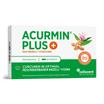
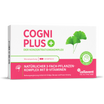


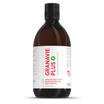

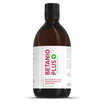


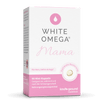




Leave a comment
This site is protected by hCaptcha and the hCaptcha Privacy Policy and Terms of Service apply.